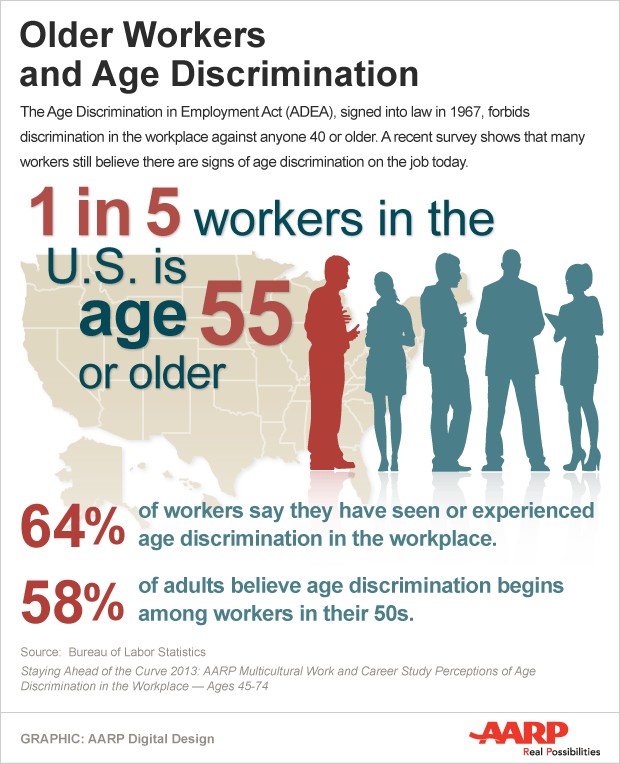In today’s competitive job market, individuals over 50 often face unique challenges when seeking employment. Despite possessing extensive experience and valuable skills, many encounter obstacles that younger candidates do not. This article delves into the reasons behind employers’ reluctance to hire older job seekers and offers strategies to overcome these barriers.
Table of Contents
Common Misconceptions About Older Workers
Employers may harbor several misconceptions about older candidates, including:
- Resistance to Change: There’s a belief that older workers are less adaptable to new technologies and methodologies. However, many older professionals actively engage in continuous learning to stay current.
- Higher Compensation Expectations: Employers might assume that seasoned professionals demand higher salaries due to their experience. While this can be true, many older workers are flexible and prioritize job satisfaction over compensation.
- Health Concerns: There’s a perception that older employees may have more health issues, leading to increased absenteeism. In reality, many maintain good health and a strong work ethic.
Legal Protections Against Age Discrimination
In the United States, the Age Discrimination in Employment Act (ADEA) prohibits employment discrimination against individuals aged 40 and above. Despite this, age discrimination persists, often subtly, making it challenging to prove. Awareness of these protections is crucial for older job seekers.
The Value of a Multigenerational Workforce
Diverse teams that include various age groups bring a wealth of perspectives and experiences. Older workers offer mentorship, stability, and a deep understanding of industry trends, which can enhance team performance and innovation.
Strategies for Older Job Seekers
To navigate age-related challenges, consider the following approaches:
- Update Your Skills: Engage in continuous learning to stay abreast of industry developments. This demonstrates adaptability and a commitment to professional growth.
- Revise Your Resume: Focus on recent experience and relevant skills. Avoid listing jobs from over 15 years ago unless they’re directly pertinent to the position.
- Leverage Your Network: Utilize professional connections to uncover job opportunities. Networking remains a powerful tool in the job search process.
- Prepare for Interviews: Be ready to address potential concerns about age by highlighting your adaptability, enthusiasm, and willingness to embrace new challenges.
Encouraging Employers to Embrace Age Diversity
Organizations can benefit from:
- Implementing Inclusive Hiring Practices: Develop policies that promote age diversity and prevent discrimination.
- Providing Continuous Training: Offer learning opportunities for employees of all ages to ensure skill relevance.
- Fostering an Inclusive Culture: Encourage collaboration and respect among employees of different age groups.
Real-Life Success Stories
Age should never be a barrier to professional success, and numerous individuals over 50 have demonstrated that experience, adaptability, and a willingness to learn can lead to remarkable achievements.
Morris Chang: Founding TSMC at 55
Morris Chang, at the age of 55, founded Taiwan Semiconductor Manufacturing Company (TSMC) in 1987. With decades of experience in the semiconductor industry, Chang identified a market need for dedicated chip manufacturing services. Under his leadership, TSMC became a global leader in semiconductor manufacturing, underscoring that age and experience can drive innovation and industry leadership.
Sarah Frame: Launching The Book Nook at 58
After a personal tragedy, Sarah Frame, at 58, transitioned from her demanding job to start a bookshop, The Book Nook, in Stewarton, East Ayrshire. Opened in late 2020, the shop successfully adapted with online sales during the pandemic and later thrived through events and author engagements. This journey exemplifies a broader trend of over-50s embracing entrepreneurship, often driven by redundancy, job dissatisfaction, or financial freedom.
Jim Butenschoen: Acquiring a Beauty School at 65
After 22 years in corporate sales and marketing, Jim Butenschoen sought a new venture at 65. He purchased the Career Academy of Hair Design, a beauty school, and successfully expanded its operations. His story highlights that it’s never too late to pursue entrepreneurial ambitions.
The Economic Impact of Age Discrimination
Age discrimination in the workplace not only affects individuals but also has significant economic implications.
Economic Losses Due to Age Discrimination
A study by AARP and the Economist Intelligence Unit estimated that bias against workers aged 50 and older reduced the U.S. gross domestic product by $850 billion in 2018. This loss reflects the underutilization of experienced talent and the economic contributions they could have made.
Benefits of an Age-Diverse Workforce
Embracing age diversity can enhance organizational performance and employee satisfaction. Older workers bring experience, mentorship, and stability, which can improve team dynamics and productivity. Companies that value age diversity often see reduced turnover costs and a broader range of perspectives, leading to better decision-making and innovation.
These examples and insights demonstrate that age should not be a barrier to professional success. Both individuals and organizations benefit when experience and diversity are valued and leveraged effectively.
Resources for Older Job Seekers
Several organizations offer support:
- AARP: Provides resources and advocacy for older workers.
- National Council on Aging: Offers job training and placement services.
- Local Workforce Centers: Many communities have centers that provide job search assistance and training programs.
The Role of Technology in Bridging the Gap
Embracing technology can help older workers remain competitive. Online courses, webinars, and virtual networking events are accessible ways to enhance skills and expand professional networks.
Conclusion
While challenges exist for job seekers over 50, understanding the reasons behind employer hesitations and proactively addressing them can lead to successful employment outcomes. Both individuals and organizations stand to benefit from embracing the strengths and experiences that older workers bring to the table.
Sources
The article draws upon various sources to provide a comprehensive understanding of the challenges faced by job seekers over 50 and the strategies to overcome them. The key references include:
- Age Discrimination in Employment Act (ADEA): This U.S. federal law prohibits employment discrimination against individuals aged 40 and above. U.S. Department of Labor
- AARP Resources: The American Association of Retired Persons offers resources and advocacy for older workers, including insights into age discrimination and support for job seekers over 50. AARP
- National Council on Aging: This organization provides job training and placement services tailored for older adults, helping them navigate the job market effectively. AARP
- U.S. Equal Employment Opportunity Commission (EEOC): The EEOC provides data and statistics on age discrimination, offering insights into the prevalence and impact of such practices in the workplace. EEOC
- Work + Money: This platform offers practical tips for job hunting after 50, addressing common challenges and providing strategies to enhance employability. Work & Money
- TopResume: This resource provides job search tips specifically for older job seekers, focusing on overcoming age discrimination and highlighting relevant skills. TopResume
- National Council on Aging (NCOA): NCOA offers effective job-hunting strategies for older adults, emphasizing the importance of updating skills and leveraging professional networks. NCOA
- The Muse: This career platform provides advice for professionals over 50, including tips on updating resumes, preparing for interviews, and staying competitive in the job market. The Muse
- SeniorLiving.org: This site offers insights into age discrimination in the workplace, including statistics and tips for confronting ageism. Senior Living
- Fast Company: This publication provides tips for landing a job if you’re over 50, focusing on updating tech skills and emphasizing the value older workers bring to organizations. Fast Company
These sources collectively offer valuable information and guidance for older job seekers aiming to navigate the job market effectively and for employers seeking to foster an inclusive and diverse workforce.



